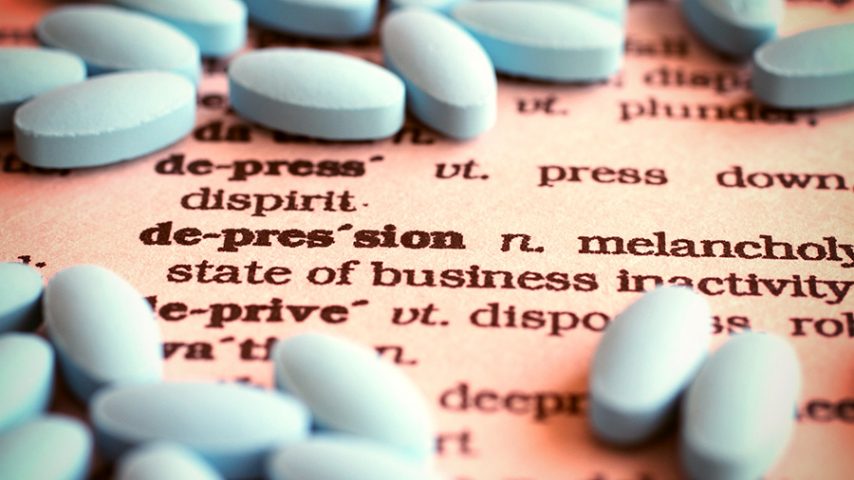Some Doctors Want More People Taking Antidepressants

‘The New Paradigm,’ Conscience and the Death of Catholic Morality
February 27, 2018
The Insidiousness of the Culture of Death
February 27, 2018
By William M. Briggs, a Senior Contributor, The Stream, Feb. 27, 2018
 There are calls for “at least a million more Britons” to be put on antidepressants. This is odd because Britain’s National Health Service already “prescribed a record number of antidepressants” in 2016.
There are calls for “at least a million more Britons” to be put on antidepressants. This is odd because Britain’s National Health Service already “prescribed a record number of antidepressants” in 2016.
That represented “a massive 108.5% increase on the 31 [million] antidepressants which pharmacies dispensed in 2006.” In the States, one estimate is that 12% are already on these drugs.
Still, the clarion for ever more drugs was signaled after the results from a new statistical analysis were announced.
The Study
Do antidepressants alleviate or ameliorate the suffering caused by acute major depressive disorder? In some cases, the analysis, published in The Lancet, says the answer seems to be yes. Which means that in some cases, the answer appears to be no. This is another way of saying that antidepressants don’t always work, or don’t work for all people all of the time.
And that means that, at least for some, placebos are as “effective” as the active chemicals in antidepressants. The authors admit, “Depressive symptoms tend to spontaneously improve over time and this phenomenon contributes to the high percentage of placebo responders in antidepressant trials.”
Placebos, it should go without saying, do not carry any risk of side effects. Actual drugs do; about which, more in a moment.
Caution Over the Results
Now this was not an original study, but a re-look at old studies called a “meta-analysis.” As a statistician, I only often half-jokingly say that meta-analyses are conducted to “prove” what individual studies could not. If the results from individual researches were clear and robust, meta-analyses would hardly be needed. On the other hand, a meta-analysis can provide a vantage individual studies cannot. The limitations of the method must be kept in mind.
Only studies that treated acute depression were examined here. What about side-effects? Cipriani cautioned “that some of the adverse effects of antidepressants occur over a prolonged period, meaning that positive results need to be taken with great caution, because the trials in this network meta-analysis were of short duration.”
The result of the meta-analysis indicate antidepressant effectiveness is not strong, classed as medium to small effect sizes. The authors warn “Given the modest effect sizes, non-response to antidepressants will occur.” Meaning not all who are given drugs will react to them.
Help us champion truth, freedom, limited government and human dignity. Support The Stream »
Now the study’s reported statistical measures are highly specialized and take definite meaning only inside a mathematical system. The details are too technical to go into, but naive use of reported measures can exaggerate effectiveness.
Why do I mention this? Because the effect sizes are not as impressive as they might appear (especially to the media). Another caution: “The effect sizes were also smaller in more recent and larger placebo-controlled trials than in older and smaller ones, which might be an indicator of bias.”
Causes of Depression
All this makes the calls for boosting the number of people given drugs curious. Especially since the long-term side-effects are not accounted for. Nor are things like this.
The push is on, however. The Telegraph is behind the cause. It announced that fourteen is “average age of onset for depression, as diagnosed now, compared to 45 in the 1960s.” They also say there was a 166% “rise in young people who talked about suicide during Childline (UK) counselling sessions in 2013/14, compared to 2010/11.”
If these numbers are right, and given there has been no widespread new organic causes of disease, then something in the culture has dramatically changed. Wouldn’t it be better to fix these cultural sources of despair, rather than identifying all of it with clinical depression and then treating its symptoms with drugs?
Side Effects
Antidepressants, as said above, give rise to the possibility of side-effects. Two of these include suicide and homicidal ideation. Meaning having thoughts about killing people.
Violence and antidepressants are not strangers. One study found “violence disproportionally reported for 31 drugs.” Most were antidepressants and those drugs used to treat attention deficit hyperactivity disorder, a popular diagnosis for high-school-aged boys. The Center for Disease Control reports the “percent of children with an ADHD diagnosis continued to increase, from 7.8% in 2003 to 9.5% in 2007 and to 11.0% in 2011-12.”
One explanation is that as more people understand ADHD and depression, they are more likely to go to the doctor. That would cause the number of diagnoses to go up. The other explanation is that the meaning of these maladies broadens because of cultural factors.
The latter explanation best accords with the skyrocketing rates of antidepressant use. In 1988-1994 (in the States), less than 2% of 18-44 year-olds and 3% of those 65 or older taking them. Now it’s 9% and 19%.
Since the call is for more diagnoses, there’s nowhere for these numbers to go but up. That must mean an increase in the number of side-effects and the damage they bring.
______________________




